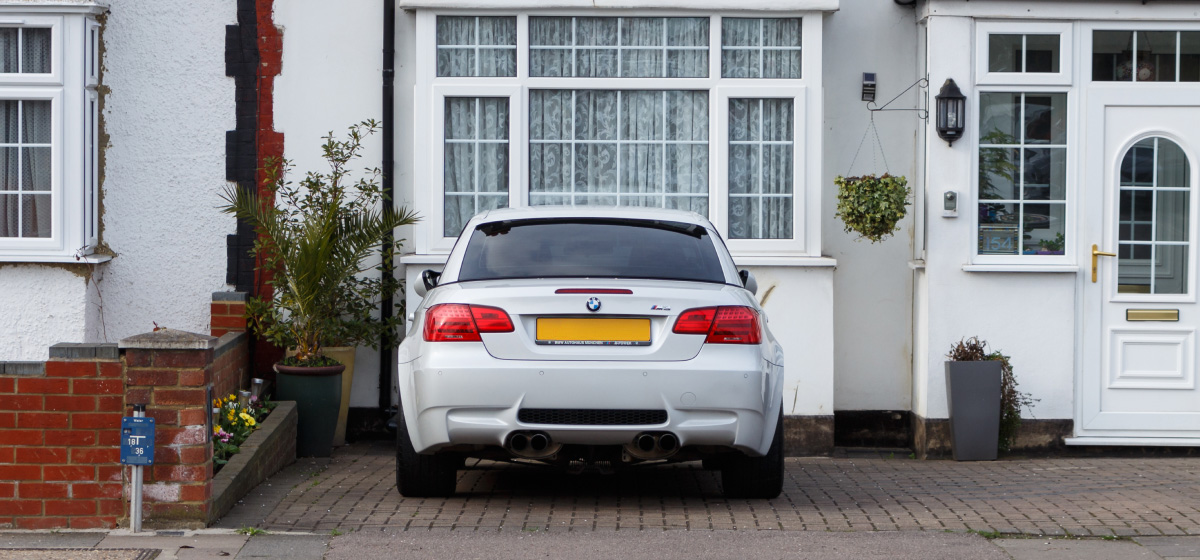Many of us are using our cars far less than ever before. Having adapted to new ways of working and living, this is likely to continue even as coronavirus restrictions begin to lift. But should you SORN your car if you’re not using it? We’re going to run through when, why and how to declare your car SORN.
What does SORN mean?
SORN means Statutory Off Road Notification. SORN is used to let the Driver & Vehicle Licensing Agency (DVLA) know you’ve taken a vehicle “off the road” and you want to stop taxing or insuring it. Once you’ve registered your vehicle as SORN, you’re not allowed to keep it or drive it on a public road. Your vehicle will need to be kept on private land such as your driveway or in your garage.
Should I SORN my car if I’m not using it?
If you’re not going to be driving your car for a couple of months and you’ve got access to keep it on private land, it’s a good idea to SORN your car. It’ll definitely save you some cash and it’s not as complicated to do as you might think. However, while your car is SORN it’s illegal to drive it on public roads so only SORN your car if you’re sure you’re not going to need to use it for a while.
When might you need to SORN your car?
- You’re going to university and not taking your car with you
- You’re working from home and not driving your car anymore
- You want to scrap your vehicle
- You have a classic car that you only drive in the summer
- Your insurance or road tax has expired and you don’t want to renew it
- You’ve started sharing a car with someone in your household but you’re undecided on whether or not to sell your car
- You’ve bought a car you want to do up but it’s not roadworthy yet
Will I get a tax refund if I SORN my car?
Yes, when you declare your car as off road, your vehicle tax is cancelled, and you’ll get a full refund for any full months of remaining tax. The amount you get refunded will be calculated from the date the DVSA receives your notice to declare the vehicle as off road. So, it’s a good idea to let the DVSA know as soon as possible to save some extra cash.
Do I still need insurance if I declare my car as off the road?
You don’t need to insure your car if it’s SORN. However, it may be a good idea to get some level of insurance because your car could still be damaged or stolen if it’s off-road. Insurance policies commonly called “laid up car insurance” are perfect for this as they’ll cover you for loss or damage from fire or theft while it’s off road.
Can you drive a SORN car to MOT?
Yes, you can drive a SORN car to MOT. Driving to a pre-booked MOT appointment is the only exception to driving your car when it’s SORN. However, it’s still illegal to drive there without insurance so if you don’t already have cover in place, you’ll need to pick up some temporary insurance.
Check out our article on driving without insurance for more info.
How to declare your car as SORN
You can declare your car SORN online, by phone or by post:
- To SORN your car online, head to https://www.gov.uk/make-a-sorn
- To SORN your car by phone, call 0300 123 4321
- To SORN your car by post, go to your local post office or download a V890 form from here and send it to DVLA, Swansea, SA99 1AR
You’ll need:
- Your vehicle registration document (V5C)
- The 16-digit number from your v11 tax renewal reminder
How long is a SORN valid?
SORN is valid until your car is taxed, sold or scrapped. When you renew your tax online on the DVLA website, it will automatically end SORN on your car.
Temporary car insurance
Temporary insurance can be helpful for lots of different reasons when you SORN your car or when you want to cancel it. For example, you may use temporary insurance:
- Taking your SORN car to your pre-booked MOT appointment
- To borrow a car from a friend or family member while yours is off road
- If you want to cancel your SORN, you can use temporary insurance to apply for car tax and be covered in the meantime while you wait to sort out your annual insurance policy
With our temporary insurance you could borrow someone else’s car or get cover on your own for as little as 1 hour or up to 60 days. Cover is fully comprehensive, and you could be on the road in minutes.
